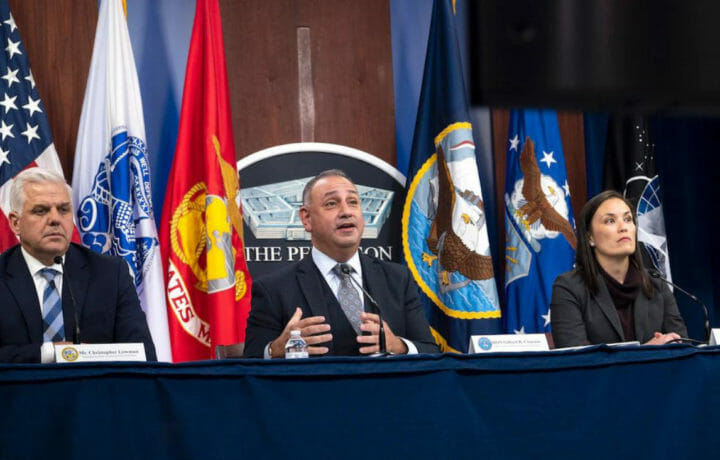Under Secretary of Defense for Personnel and Readiness Gilbert R. Cisneros Jr. sent a memorandum on October 25, stating that suicide prevention is an ongoing issue for all personnel. Even though suicide prevention month was September, the Department of Defense wants to continue to keep suicide prevention as a focus by launching a campaign with the theme Connect to Protect: Support is Within Reach. The campaign highlights the critical role connections to family, friends, community, and resources play in helping to prevent suicide.
In the memo, Cisneros said, “Every single one of us faces stress, anxiety and life challenges, and each of us responds differently. For some, these experiences can increase the risk of suicide. By being there for one another, helping to navigate challenges in healthy ways, and leveraging resources throughout the year, we can remain strong, together.”
Suicide Prevention Support Available
A quick internet search of military suicide prevention will give you a wealth of resources related to helping service members, veterans, and their families. Tying into Cisneros advice, “When you need to reach out, do it.” The U.S. Department of Veterans Affairs recently launched Don’t wait. Reach out, in partnership with the AdCouncil. The site is designed for veterans to proactively seek support and other resources.
The memo also highlighted other organizations that are helping with mental health such as Military One Source for non-crisis support and for issues surrounding relationships, families and financial challenges. Military One Source also provides free and confidential 24/7 support to service members and their families at 800-342-9647 or through a live chat. DoD civilians can seek mental health help through the Employee Assistance Program. Information is available through human resources or you can reach out for confidential help 24/7 at 800-222-0364.
Mental Health and Your Security Clearance
But still service members and civilians worry that reaching out for help may cause them to lose or not have the ability to gain a security clearance because of mental health concerns. That myth is not true and actually is counter to the current policy for security clearance. The Defense Counterintelligence and Security Agency states that seeking mental health services does not affect one’s ability to gain or hold clearance eligibility. Adjudicators regard seeking necessary mental health treatment as a positive step in the security clearance process rather than a negative detractor.
There are many reasons people do not seek mental health support such as personal beliefs around self-reliance, concerns around how others may react, and the barriers/availability to mental health care. But those reasons pale in comparison to the misbelief that seeking mental health care could adversely impact their security clearance eligibility. This is not the case.
ClearanceJobs broke down the guidelines as they pertain to mental health when gaining security clearances. From 2012 to 2018, there were over 2.3 million adjudicative actions and of those, 2.03% were cases with psychologically-related issues and only 12 or .00507% were denials/revocations for only psych issues.
The truth is that not seeking mental health care can actually have a bigger impact on your security clearance because it could lead to decreased force readiness, increase suicide risk, or increased security concerns.




